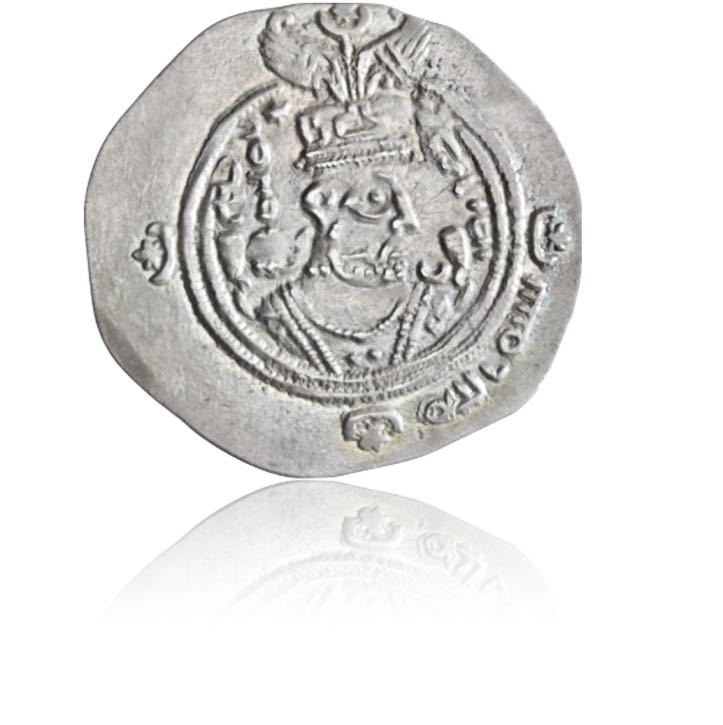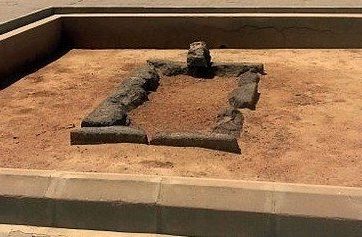
Another example as amazing as transparently exhibiting the same cunning and opportunism, was that of Imām ‘Alī ibn Abī Ṭālib before the Committee of Six convened by the ailing ‘Umar, whereby he refused to accept that his rule should be conditional upon acting according to the Book of God and the Sunna of his Messenger, and instead set for himself a contrary condition whereby he would follow his own opinion and determine his standpoints according to things as they developed.
THIS WAS BECAUSE Imām Ali was aware that “the Qur’ān does not speak, but rather it is men who speak through it”. He thus ordered his men not to be deceived by those who raised copies of the Qur’ān on the tips of their spears, arguing that, “they only raised them up before you out of acts of cunning and deception”. In both aspects the imam was defeated: he lost his chance for the caliphate when they accepted ‘Uthmān as caliph, and was made to abide by the Qur’ān and the Sunna. Even though ‘Uthmān, in turn, experience the problems of having to adhere to the Qur’ān and the Sunna in political affairs, he nevertheless accepted the conditions, knowing that he would have to subsequently break them. These were lost for the sake of transparency and sincerity with respect to religion and politics, and for saying clearly to all the Companions at the time that this was the right thing to do and that the issue was one of politics, not of the Qur’ān or the Sunna. Others, however, preferred to work according to ḥalāl and ḥarām and his men were finally defeated by Mu‘āwiya’s army and their raising of the Qur’ān on spears.
Mu‘āwiya thus used Islam for the worldly matters, something which is as far as can be from Islam, while ‘Alī refused to use Islam in mundane affairs, a fact which makes ‘Alī the closest of the Companions to Islam. From that time, Mu‘āwiya and his policy have been at the forefront of the opportunistic use of religion to achieve ends that have nothing to do with religion from top to bottom without exception. They have all been trading in it. Imām ‘Alī rejected this, while ‘Uthmān accepted it, and if the emirate, its governance and systems had been one of religion the two great Companions would not have differed in their experiences, given that they were the closest to the Prophet and the two most informed concerning the faith. They differed, however, because they knew that their differences were related to mundane affairs, not to religion.
He did not commit a religious sin, since there was no religious text that prevented him from looting the exchequer
‘Uthmān, who took the oath of allegiance to the Qur’ān and the Sunna, imposed the Umayyad dynasty over the necks of the others, turned them into his agents and governors over the provinces, and took control of the valuables in the exchequer that had been looted from Egypt and Persia. He did not thereby commit a religious sin, since there was no religious text that prevented him from looting the exchequer, because the contents of the exchequer was itself money looted from conquered peoples. The exchequer was set up and its coffers filled according to the Sharī‘a of “either accept Islam, or pay the jizya or we will fight you” with its consequent seizure of everything that once belonged to the defeated: agency, wealth, land, women and children.
‘Uthmān did not have any Qur’ānic text preventing him from disposing of the exchequer, and even if this text had existed, ‘Uthmān would no doubt have been the first to obey any such inhibition. The Caliph therefore did not commit any infraction against religion and Sharī‘a to warrant his terrifying fate, ending up torn to pieces by the swords of the Companions, his ribs and skull smashed, and buried in a Jewish cemetery in Ḥush Kawkib in Madīna.
‘Uthmān was a Companion of great faith, solid conviction and one who spent hours at the night-time tahajjud prayer. Nevertheless, when he chose his agents for the provinces, he chose those whom he saw as serving the interests of the caliphate; he did not choose pious Companions for these positions, but rather his cousin ‘Abdullah ibn Abī Abī Sarḥ who hated the Prophet more than any other man, and Abī Sarḥ performed his role well, levying taxes from the Egyptians so intensively that infants perished from, something which led ‘Amr ibn al ‘Āṣ to say: “their sinews are all destroyed”.
When he chose his agents for the provinces, he chose those whom he saw as serving the interests of the caliphate; he did not choose pious Companions
Those who slew ‘Uthmān were members of his own family, Companions or sons of the Prophet’s Companions , along with a group of other Arab tribe members. And this was not because he broke with the Sharī‘a or because he offended Islam in some way, but because he allowed himself to distribute the war booty among his household and relatives, to the exclusion of the Companions who were entitled to it, and because he had appointed the governors exclusively from among his relatives. That is, had they got their share of positions and money they would not have killed him. In the end, all of this conflict was over this-worldly affairs – prestige, sovereignty and rank – and not about religion. And if we were to say that this was a struggle over the true nature of Islam, then that would mean that one of the two conflicting groups were kuffār – infidels – whereas they were missionaries of paradise in the Hereafter.
‘Uthmān held on to his position and said: “I will not take off the shirt that God clothed me in” because he knew, and they knew, that he did had not deviated from the Book of God and the Sunna of His Messenger, not even by removing this shirt, and that necessarily none of his actions had contravened an accepted religious practice. ‘Uthmān held fast to God and did what he did knowing that he was not violating what God had deemed permissible by taking funds from the exchequer. He knew that the Sharī‘a, did not forbid this, and that the Sharī‘a had annulled the punishment for theft from those who stole public money because this money was part of the common weal. Dhū al-Nūrayn was one of the first who preached the paradise of the Hereafter, vouchsafed by God to those whose acts did not curtail or inhibit the fulfilment of the divine will to grant passage to Heaven. ‘Uthmān knew that religion was a matter of worship and he duly performed this worship. But as for worldly affairs, these had their own system, by which the world was to be taken over by struggle.

Suggested Reading
The money of the Muslims was the right of the Emir to dispose of according to the circumstances, just as the Prophet took from this money and gave it to his relatives, something which angered the Anṣār. And this duly became a Sunna. None of the Companions had clear laws and hierarchically organised functioning bodies, nor any regulatory or accounting bodies to manage the vast territories that they had conquered. Yesterday they had been ignorant Bedouins fighting each other, and each party governed according to their own view, or their personal conscience as Companions.
So when ‘Uthmān appointed his relatives to positions and took money and valuables from the exchequer, he was not trespassing on the lists of appointees nor violating budget regulations, simply because there were no regulations or financial systems at the time, nor any clear, fixed system of governance.
Main image: ‘Uthmān ibn ‘Affān on a silver dirham minted in Sijistan AH 31, held to be the earliest extant definitively Islamic coin.
See Part One of this essay here

